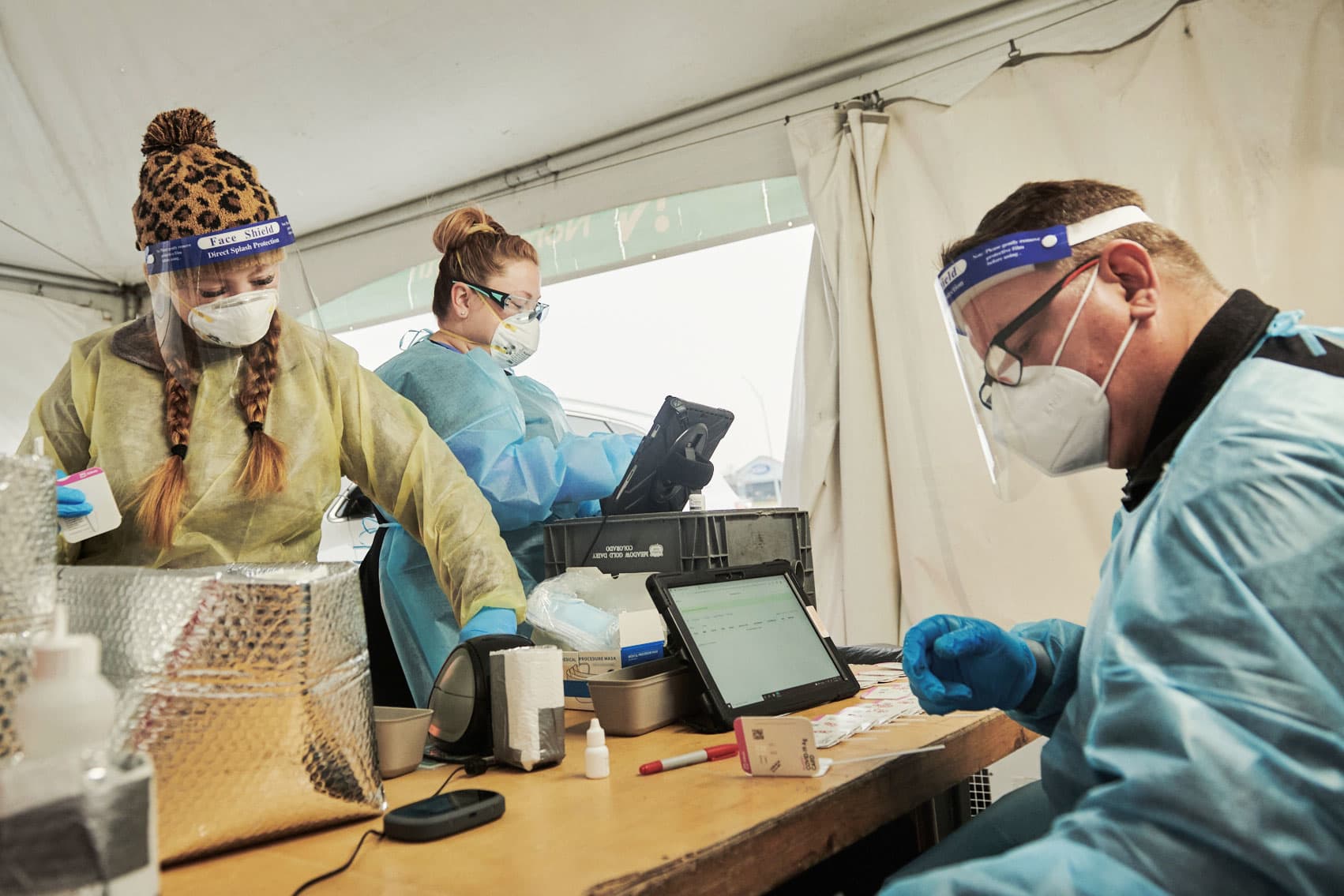Products You May Like
An investigation into a cluster of omicron infections in Nebraska suggests the heavily mutated variant has a shorter incubation period and causes similar or milder symptoms compared to past variants for people who are vaccinated or previously infected, according to the U.S. Centers for Disease Control and Prevention.
The CDC on Tuesday released findings from an epidemiological investigation into six omicron cases confirmed from a single household in Nebraska.
A 48-year-old man who returned to the U.S. on Nov. 23 from a conference in Nigeria experienced symptoms a day later and tested positive for the virus on Nov. 26. The man, who was unvaccinated and had a prior history of symptomatic infection in 2020, reported he was not wearing a mask when he had close contact with a masked individual who was coughing at the international conference on Nov. 20.
The man took an antigen test before returning to the U.S. and the results came back negative on Nov. 21. Upon his return to the U.S., he was still asymptomatic and had close contact with five members of his household in Nebraska without wearing a mask on Nov. 23.
The five members of his household, at least one of whom was as young as 11 years old, developed symptoms from Nov. 24 – 26 and subsequently tested positive. Four of them had prior histories of symptomatic infection in 2020, one of whom was fully vaccinated with two Pfizer doses.
Another individual in the household was unvaccinated and had never tested positive for Covid before. However, that person did have mild upper respiratory symptoms in November 2020 before the other members of the household first got infected.
The CDC said it took 33 to 75 hours, a median of about 3 days, for household members to show symptoms after exposure to the man who travelled, suggesting a shorter incubation period with omicron. The median incubation period for Covid is 5 days or more, while the delta variant normally takes about 4 days for symptoms to show, according to the CDC.
The household members who were reinfected experienced fewer symptoms compared to their first infections in November 2020, according to the CDC. Two of them reported fevers after infection, none reported loss of taste or smell.
The unvaccinated individual who had not tested positive before experienced cough, joint pain, congestion, fever and chills. Nobody in the household required hospitalization after testing positive from omicron, and none of them had underlying health conditions or compromised immune systems. Those reinfected did not require hospitalization after their first infections in 2020 either.
The first confirmed case of omicron was reported on Dec. 1 in the San Francisco area by California public health authorities. The individual had returned from a trip to South Africa. However, the CDC subsequently found someone who reported symptoms on Nov. 15 after international travel, indicating that the variant could have arrived in the U.S. earlier.
Omicron was first identified by South Africa and Botswana in November. The variant now represents 58% of sequenced cases in the U.S. while delta makes up about 41% of cases, according to the CDC.
A growing body of data from South Africa and the United Kingdom indicates that people do not get as sick from omicron compared to the delta variant. The U.K. Health Security Agency found that people infected with omicron were 50 – 70% less likely to require hospitalization. South African scientists found that people infected with omicron were 70% less likely to develop severe disease.
However, the authors of the studies cautioned against reading too deeply into the preliminary data, because vaccination and immunity from prior infection could have influenced the findings.
Another study from the U.K. Health Security Agency found that a booster dose of Pfizer and BioNTech’s vaccine provides 75% protection against symptomatic disease from omicron. South African data suggests that two-doses of the Pfizer vaccine still protects against severe illness, but is much less effective at preventing omicron infection.
In the U.S., new Covid cases are surging to near pandemic highs. The nation reported an average of more than 237,000 daily new cases for the seven-day period ending Monday, up 66% over the past week, according to a CNBC analysis of data from Johns Hopkins University.
More than 70,000 people in the U.S. are currently hospitalized with Covid, up 3% over the past week, according to a seven-day average of data from the Health and Human Services Department as of Dec. 27.
